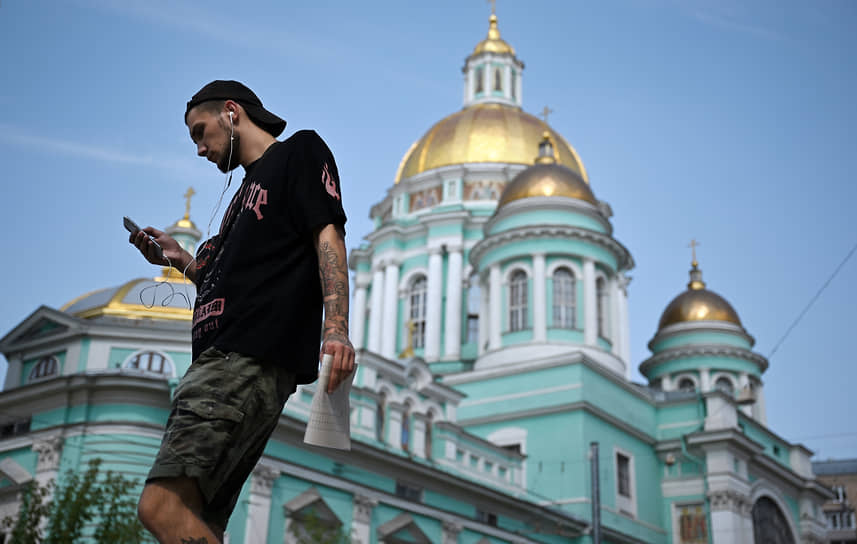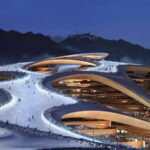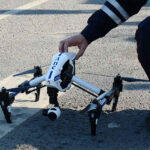Restoration work has begun on the facades of the Epiphany Cathedral in Yelokhovo on Spartakovskaya Street in Moscow, where poet Alexander Pushkin was baptized in 1799.
During the repair work, special attention will be paid to preserving the window frames with pediments on consoles, medallions with stucco rosettes, and inter-tier cornices. The restoration will involve cleaning the plaster and white stone finishes of the facades, restoring damaged elements, and preserving the mosaic panels.
The facade restoration is scheduled to be completed by the end of 2026.
The Orthodox Epiphany Cathedral in Yelokhovo was built between 1837 and 1845 according to the design of architect Evgraf Tyurin. In the 16th century, a wooden church stood on this site, and in the 1720s, by order of Peter I, it was rebuilt into a stone church.
Epiphany Cathedral
The Epiphany Cathedral is a historic Russian Orthodox cathedral located in Moscow, constructed in the late 17th century. It served as the primary church for Moscow’s merchants and is renowned for its classic Russian architectural style with distinctive Baroque elements. The cathedral has been a significant center for Orthodox worship and survived the Soviet era, continuing to hold religious services today.
Yelokhovo
Yelokhovo is the common name for the Cathedral of the Epiphany in the Yelokhovo district of Moscow. Originally a wooden church built in the 17th century, it was replaced by the current grand Neoclassical cathedral, which was completed in 1845. It gained significant historical importance by serving as the Patriarchal Cathedral of the Russian Orthodox Church from 1945 to 1991, during the Soviet era.
Spartakovskaya Street
Spartakovskaya Street is a major thoroughfare in Moscow, Russia, named in 1919 in honor of Spartacus, the leader of a famous slave revolt in ancient Rome. Historically, it was known as Yelokhovskaya Street, named after the nearby Yelokhovo Cathedral, and has long been a significant commercial and residential artery in the city’s Basmanny District.
Moscow
Moscow is the capital and largest city of Russia, with a history dating back over 800 years to its first recorded mention in 1147. It grew from a medieval fortress, the Kremlin, to become the political and cultural heart of the Russian state. The city is renowned for its iconic landmarks, including Red Square, St. Basil’s Cathedral, and the historic Moscow Metro.
Alexander Pushkin
Alexander Pushkin was a renowned Russian poet, playwright, and novelist of the 19th century, widely considered the founder of modern Russian literature. While not a place, his legacy is honored at sites like the Pushkin Museum in Moscow and his apartment-museum in St. Petersburg, where he lived before his fatal duel in 1837. His works, such as *Eugene Onegin*, continue to be celebrated for their profound influence on Russian culture and language.
Evgraf Tyurin
I am unable to provide a summary for “Evgraf Tyurin” as it does not refer to a well-known place or cultural site. The name appears to be that of a Russian individual, possibly a historical figure, rather than a location. For an accurate summary, please verify the name or provide more specific details.
Peter I
Peter I, also known as Peter the Great, was a Russian Tsar and later Emperor who ruled from 1682 to 1725. He is most famous for his extensive reforms that modernized Russia and for founding the city of Saint Petersburg in 1703, which served as the new capital and a “window to Europe.” His reign transformed Russia into a major European power.





